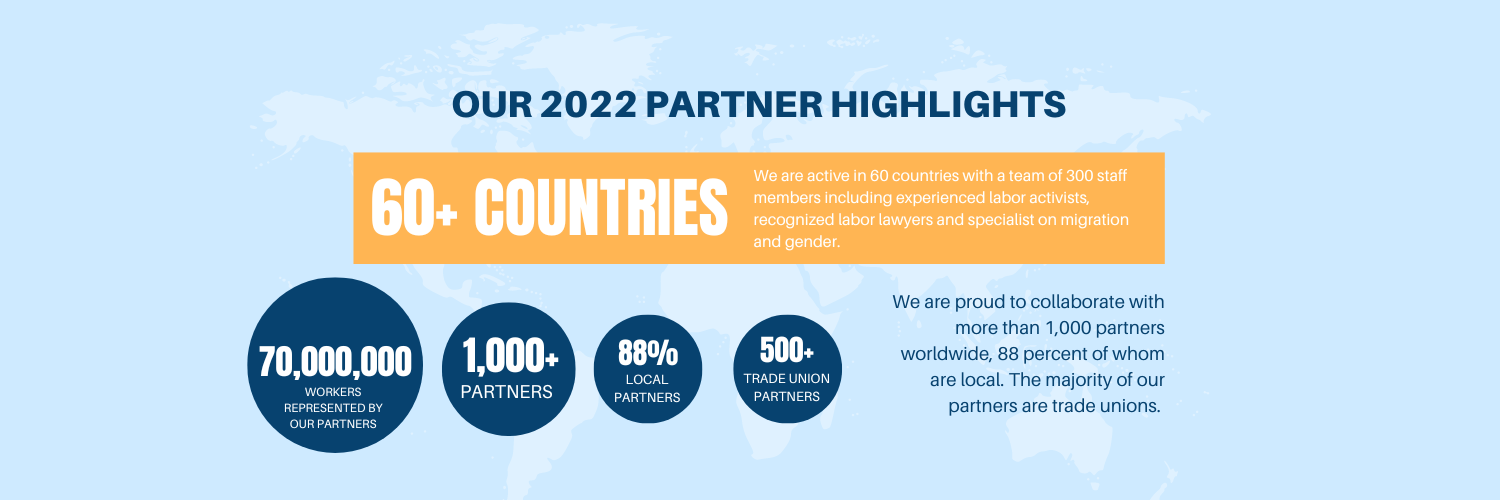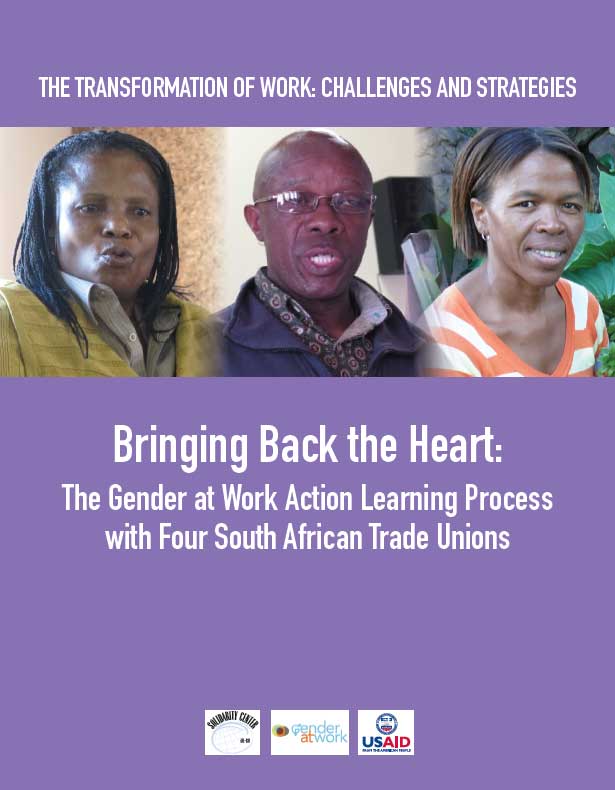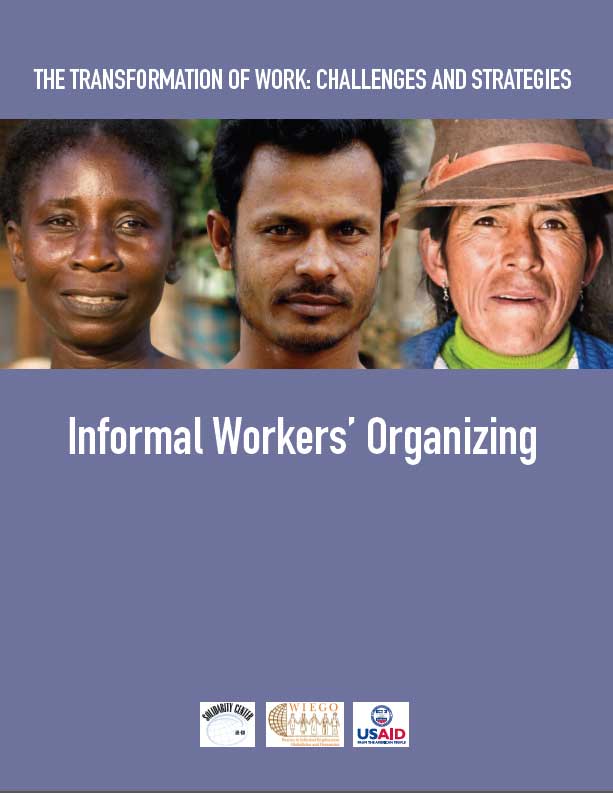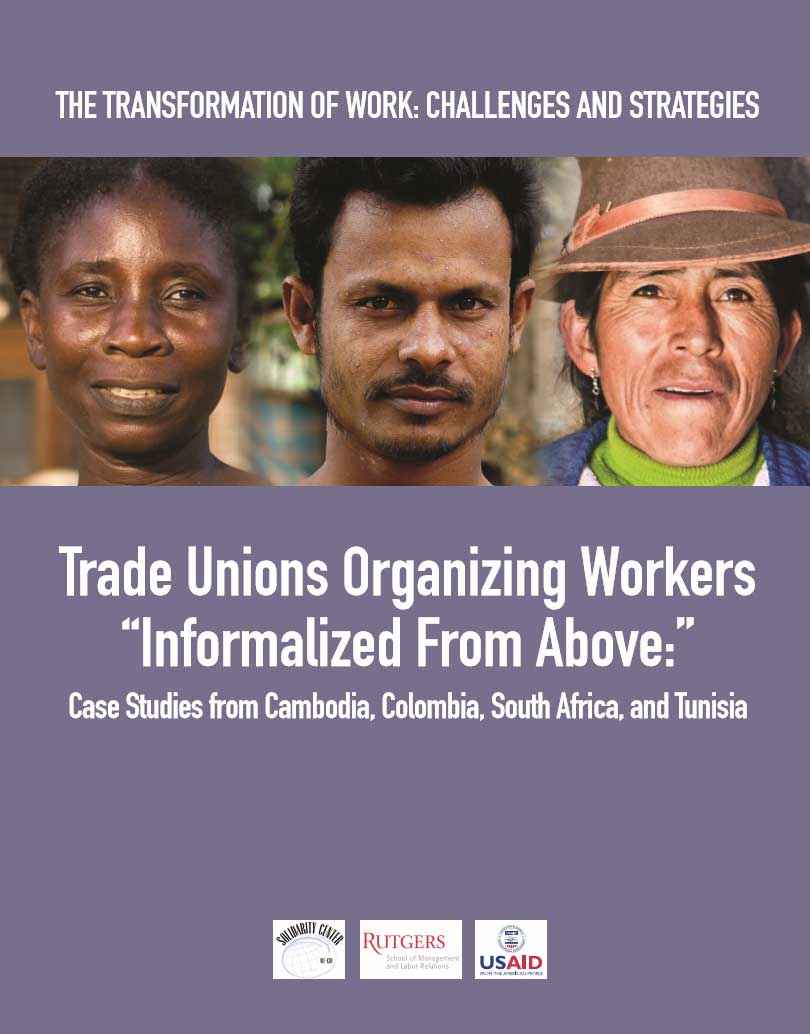LEARN MORE ABOUT OUR PARTNERS!
The Solidarity Center, as part of the global labor movement, is proud to work closely with trade unions, civil society organizations, academic institutions, progressive private foundations, labor-friendly businesses, governments and dozens of generous individuals to fight for worker power on a worldwide scale. Their ideas and support fuel our collective action through cross-movement and coalition building. They help us support, organize and elevate millions of worker voices and build stronger communities.
For a selection of some of our partners and allies please click here.
Global in Nature, Local in Practice
The Solidarity Center has 35 field offices and works in more than 60 countries, with a focus on the Global South. With more than 25 years of experience as the largest U.S.-based international worker rights organization, we have built a deep trust and reputation with local trade union partners, worker associations and workers. As a result, we are uniquely positioned to quickly identify trends that impact working people and opportunities for change through campaigns and cross-movement building.
We are proud to work with more than 1,000 partners, including 500 trade union partners. The majority–88 percent of those partnerships–come from the grassroots. Solidarity Center staff include labor activists experienced in organizing, advocacy and grassroots internationalism, recognized labor rights lawyers, and migration policy and gender specialists. The Solidarity Center has also built strong relationships with civil society partners including worker centers and community organizations at the intersection of worker rights, environmental activism and women’s rights.
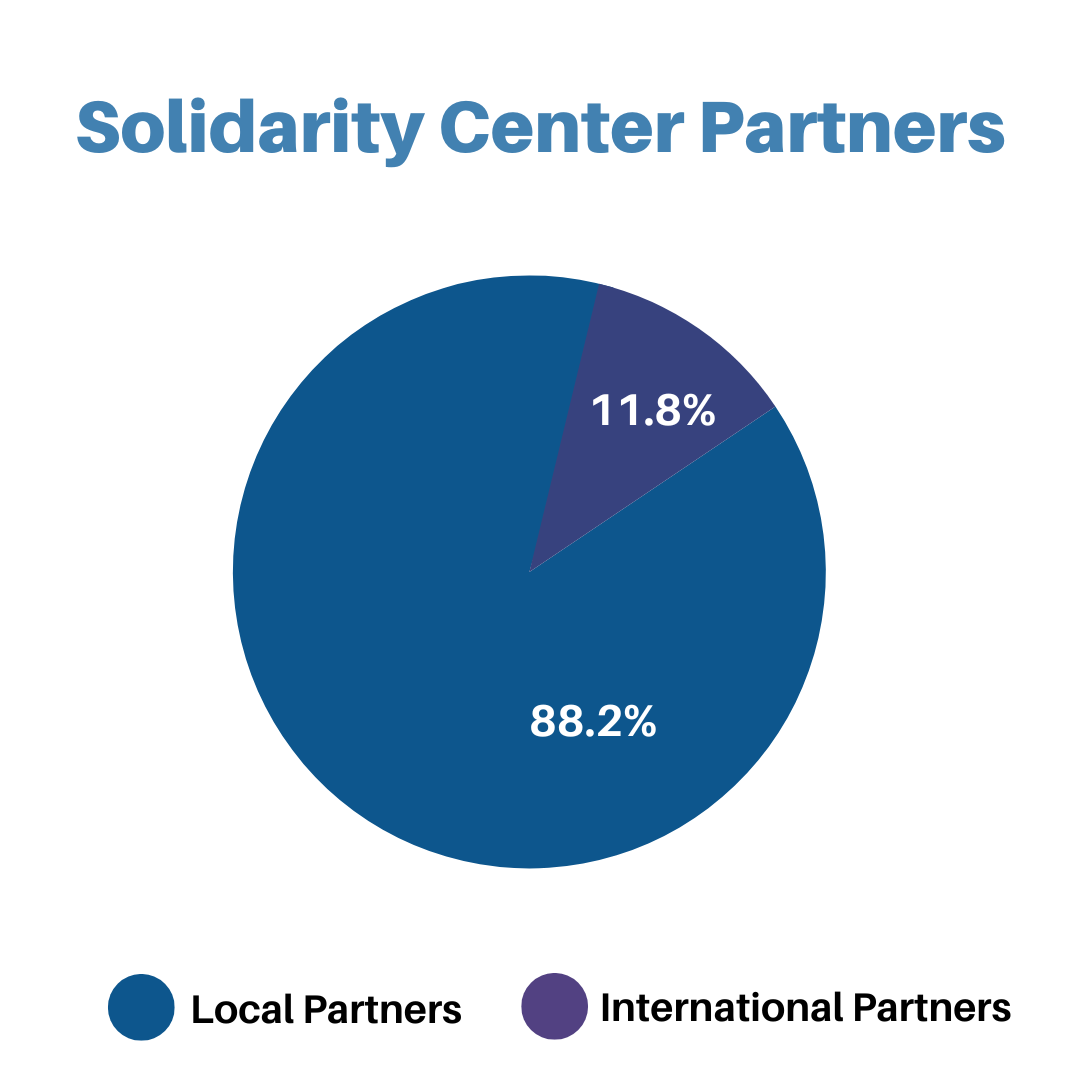
This work is only possible through collective action and collaboration. We are thankful for the generous contributions of individuals and organizations around the world—whether a donation, in-kind support or thought leadership through coalition building. With our distinctive access and local outreach, we are able to multiply your support and reach millions of workers and their families and communities worldwide.


